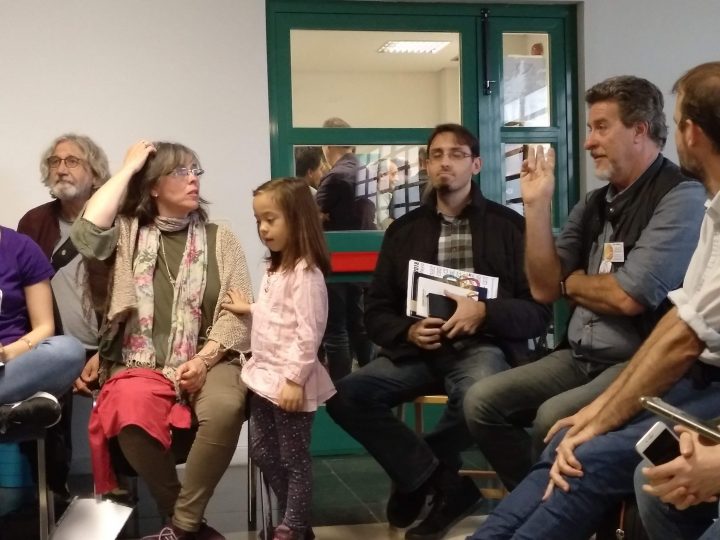Paco Vaquero is a member of Humanistas por la Renta Básica Universal. (Humanists for the Universal Basic Income). He has participated in the European Humanist Forum, held recently in Madrid, as a speaker at the round table on “Independent Journalism and Social Activism” as well as in the area of “Politics and Social Mysticism”.
What has been the role of independent media in social transformation and what could be their future role?
Fundamentally, it is to “infiltrate” the single thought that the (single) system is trying to impose on us. Of course, this means that, in most cases, independent journalism is very much at stake: from the journalist’s honesty, to his or her economic survival, to his or her family in other cases and finally to life. All to get to the place of the facts, or the place where the facts are distorted. This is something that we will not fully appreciate, given the current disproportionate resources.
Could the independent media contribute to generating the story of a new, more humane and less violent culture and break with the cultural hegemony of the mainstream media?
No doubt about it. Behind this work, or perhaps ahead of it, is an attentive look and a willingness to show the face of the distorted reality that, seductively at times – but no less violent for that matter – is being imposed on us.
To expose the other viewpoints, the other experiences of the same event is precisely an act of cultural action, counter-cultural if you will, that responds to an ancestral code of Humanity: Treat others as you want to be treated.
Could they help to restore the freedom of expression so threatened?
So far they’re keeping the flame burning. Just about, given the current times where it is served willy-nilly as the main dish of information, as an absolute truth that needs a garnish the stir-fry lies, more or less subtle, to help digest the most coarse, even avoiding the sell-by dates of the information itself.
But yes, they could help to establish freedom of expression as a human right, something that, at present, is reserved without risk only for the spokespersons of the system.
Right now it’s time to resist.
The media agenda does not represent the reality of citizenship and is alien to its needs and interests. Can social movements with their actions and mobilisations include an issue in the media agenda?
Definitely yes, definitely. We have experience of this in recent times, especially from movements such as the 15M in Spain, which coincided with the Occupation of Wall Street, or the dignity camps years before, in the Sahara, or more recently, the mobilisations against evictions, pensioners and especially feminism which, for me, is a meeting place for many demands “for women”, which is also a “for all” and is managing to put the judicial, labour, representation and other systems in check.
Clearly, the interest of all these mobilizations was not precisely to achieve a “quota” in this media agenda. They were the news because of their conviction in the struggle they are waging.
Can citizens generate information and set the media agenda?
As I mentioned in the previous question, if citizens are able to organise themselves and show their position with permanence and majority, there will have no alternative for the media but to attend to their demands. Of course, it is to be expected that they will manipulate the facts and their interpretations as much as possible. This is where the presence of the independent media becomes necessary.
In relation to the motto of this forum: “what unites us” How can we improve our joint work with the media and social movements?
The question is rightly asked, in my opinion, because it is not a question of creating a kind of independent media-social movements conspiracy that ends up doing the same thing that the big media already do.
Everyone’s work needs a meeting place, some “connections” if you will, where the truthfulness of the facts, as well as the interpretations, are reflected with total honesty.
The independent media, from their very definition, distinguish themselves not only from the official circuits -creating their own- but also from professional ethics to guide them. In other words, independent journalism is itself diverse and shows diversity of expression. The counterpart is the monoblock that we observe in the TV channels, for example, where we only disagree on the weather forecast, or the horoscope.
Social movements, also from their very definition, do not present a rigid road map in their actions, and a united front of action. But the truth is, the direction of their actions seeks to remove the current system of “welfare” enjoyed only by some people. It is in the diversity and in the common encounter that only happens when it is realised that there is no “opposition” between the different proposals, but on the contrary, complementation.
What unites us, in essence, seems to be clearly perceived, how we get together must be given form.
I have hope.
Translated from Spanish by Pressenza London






